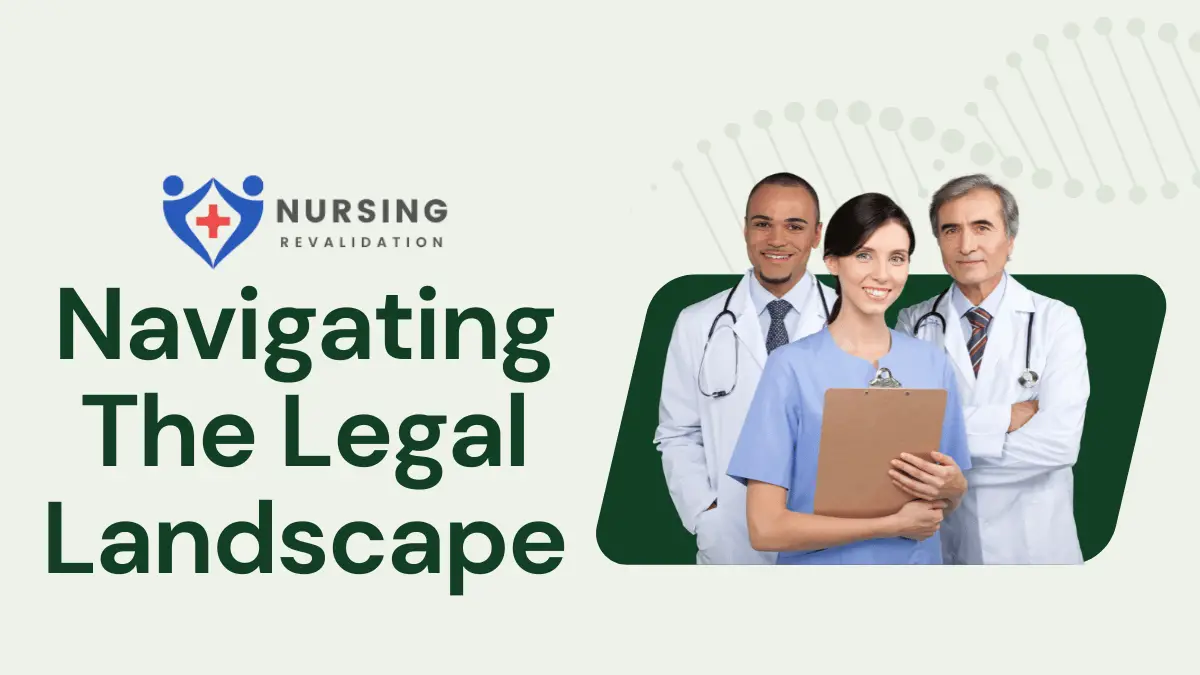In the realm of healthcare, nurses play a pivotal role in ensuring patient care and safety. However, the practice of nursing is not immune to legal implications. Understanding the legal issues affecting nursing practice is essential for nurses to navigate their roles effectively while upholding ethical standards. This comprehensive guide delves into the intricate relationship between nursing and the law, offering insights into various legal aspects that nurses encounter in their daily practice.
Understanding the Legal Framework for Nursing Practice
Legal Standards and Regulations
Nursing practice is governed by a complex framework of laws, regulations, and standards aimed at safeguarding patient welfare and ensuring quality care delivery. State nursing practice acts establish the scope of nursing practice, delineating the responsibilities and limitations of registered nurses (RNs) and licensed practical nurses (LPNs). Additionally, regulatory bodies such as state boards of nursing and professional organizations like the American Nurses Association (ANA) provide guidelines and standards to guide nursing practice.
Scope of Practice
The scope of practice defines the permissible activities and responsibilities of nurses based on their level of education, training, and licensure. Nurses must adhere to the scope of practice outlined in their state’s nursing laws and regulations to avoid legal repercussions. Understanding the boundaries of one’s scope of practice is crucial for ensuring safe and competent care delivery while minimizing legal risks.
Table: Legal Issues in Nursing Practice
| Legal Issue | Description |
|---|---|
| Patient Confidentiality | Protecting patient health information and ensuring compliance with HIPAA regulations. |
| Informed Consent | Obtaining valid consent from patients before performing medical procedures or treatments. |
| Documentation | Accurate and comprehensive documentation to maintain continuity of care and serve as legal evidence. |
| Malpractice Liability | Potential liability for negligence, errors, or omissions in patient care, leading to harm or injury. |
| Risk Management | Proactive measures to mitigate legal risks, including obtaining liability insurance and adhering to standards of care. |
Key Legal Issues Impacting Nursing Practice
Patient Confidentiality and HIPAA Compliance
Maintaining patient confidentiality is a cornerstone of nursing practice, governed by the Health Insurance Portability and Accountability Act (HIPAA). Nurses must safeguard patient health information and ensure compliance with HIPAA regulations to protect patient privacy rights. Failure to uphold confidentiality can result in legal sanctions, including fines and disciplinary action by regulatory authorities.
Informed Consent
Obtaining informed consent is essential before performing medical procedures or treatments on patients. Nurses play a vital role in facilitating the informed consent process by providing patients with relevant information about proposed interventions, including risks, benefits, and alternatives. Failure to obtain valid informed consent can lead to allegations of negligence or medical malpractice, exposing nurses to legal liability.
Documentation and Record Keeping
Accurate and comprehensive documentation is critical in nursing practice for maintaining continuity of care, facilitating communication among healthcare providers, and serving as legal evidence in case of disputes or litigation. Nurses must adhere to documentation standards and guidelines established by regulatory bodies to ensure the integrity and reliability of patient records. Inadequate or erroneous documentation can have serious legal implications, potentially compromising patient safety and care quality.
Legal Risks and Professional Liability
Malpractice Liability
Nurses are susceptible to malpractice claims alleging negligence, errors, or omissions in patient care. Malpractice liability arises when a nurse breaches the standard of care expected in similar circumstances, resulting in harm or injury to the patient. Nurses must exercise diligence and caution in their practice to mitigate the risk of malpractice liability, including adhering to established protocols, seeking assistance when needed, and maintaining competence through ongoing education and training.
Legal Protections and Risk Management
To mitigate legal risks and protect themselves from liability, nurses can take proactive measures, such as obtaining professional liability insurance, adhering to standards of care, and practicing within their scope of practice. Additionally, participating in risk management programs and continuing education activities can enhance nurses’ awareness of legal issues and promote safe practice.
Conclusion:
Navigating the intersection of nursing practice and the law requires a thorough understanding of legal standards, ethical principles, and professional responsibilities. By staying informed about key legal issues, maintaining compliance with regulations, and practicing within their scope of practice, nurses can uphold the highest standards of care while minimizing legal risks. Through continuous education and vigilance, nurses can contribute to a healthcare environment that prioritizes patient safety, quality, and ethical practice.

